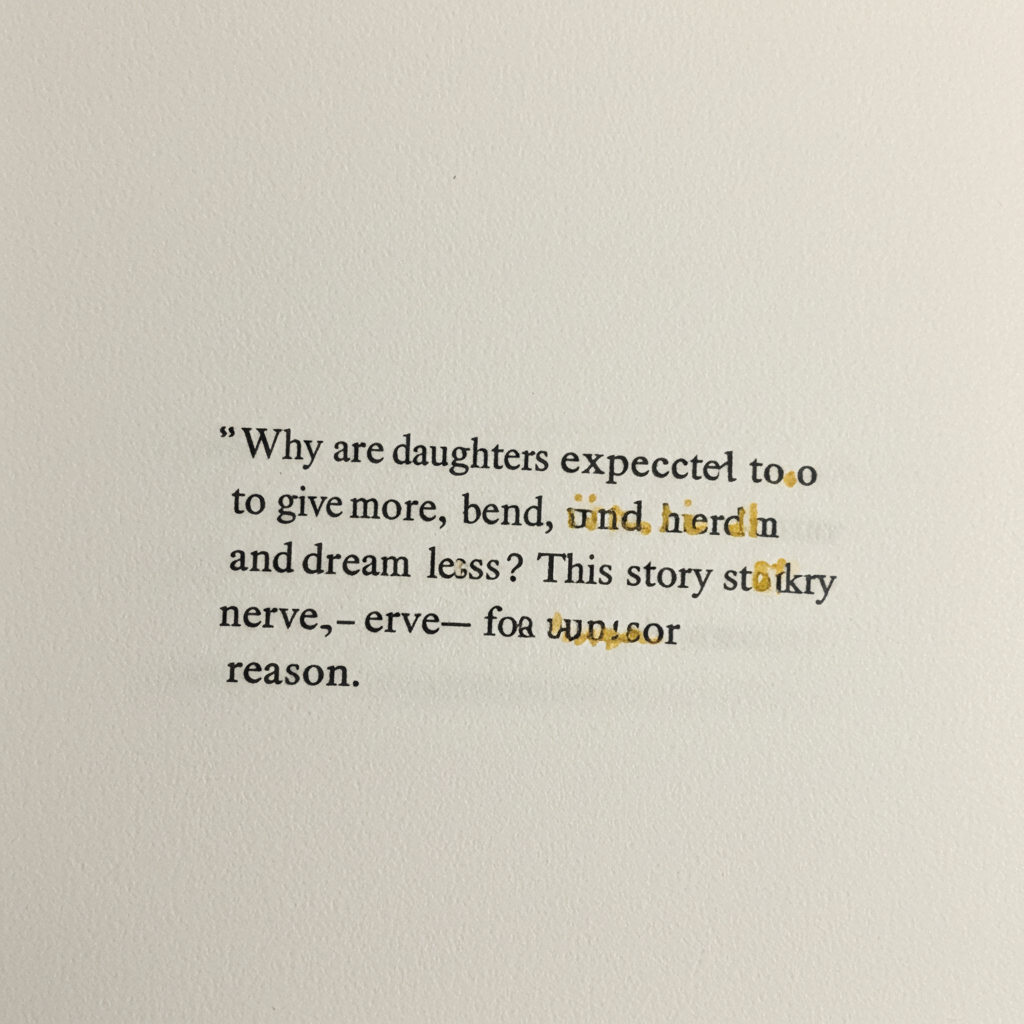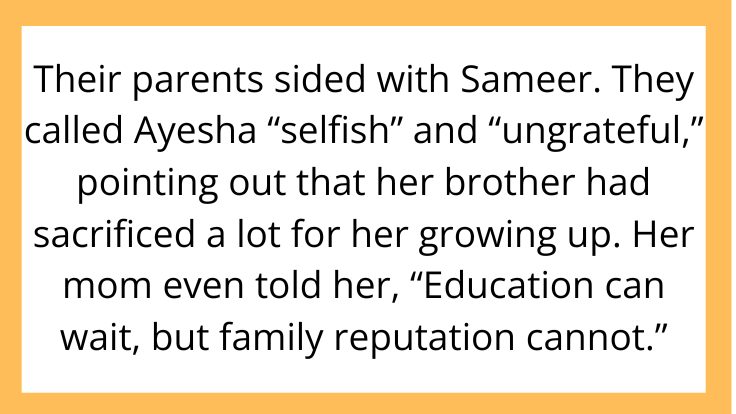AITAH for Refusing to Give My College Fund to My Brother for His Dream Wedding?
Some decisions are more than just financial—they’re deeply emotional, rooted in family expectations, personal goals, and long-standing sacrifices. In this AITAH-inspired scenario, a young woman is asked to give up her college fund so her brother can have the lavish wedding of his dreams.
It’s a family request that tests the limits of love and obligation. But does saying no make her heartless—or simply practical?
Let’s break it down.
The Background: A Lifetime of Savings

The original poster (OP), an 18-year-old named Ayesha, explained on r/AITAH that she had been saving for college since she was 13. Her parents didn’t have the means to fund her education fully, so she took on part-time jobs and applied for scholarships. Over the years, she managed to save over $20,000—money she planned to use for tuition, books, and living expenses.
Enter her 26-year-old brother, Sameer. Recently engaged, Sameer wants a “grand Bollywood-style wedding” to impress his fiancée’s family and friends. However, he’s short on funds. He approached their parents, who said they could only contribute a small amount.
That’s when the family turned to Ayesha—with a bold ask: Could she give her college fund to Sameer to help pay for the wedding?
The Family Argument: “We’re All in This Together”

Sameer argued that weddings are once-in-a-lifetime events, and his in-laws have high expectations. He promised to pay Ayesha back “eventually,” claiming she could always go to a local college or defer for a year.
Their parents sided with Sameer. They called Ayesha “selfish” and “ungrateful,” pointing out that her brother had sacrificed a lot for her growing up. Her mom even told her, “Education can wait, but family reputation cannot.”
Feeling cornered and betrayed, Ayesha refused. She told them the money was hers and that she wasn’t going to give up her dream for a party.
Now, the house is full of tension, and Ayesha turned to Reddit to ask: AITAH for refusing to give my brother my college fund for his wedding?
What the Internet Thinks: A Hard No

The AITAH subreddit responded with overwhelming support for Ayesha.
“Absolutely not the villain,” one top comment read. “A wedding lasts a day. Your education lasts a lifetime.”
Another user added, “If your brother really cared about you, he’d never ask you to give up your future for his event.”
While a few users suggested Ayesha could offer a small loan or symbolic gesture of support, the consensus was clear: she is not obligated to sacrifice her education for anyone—especially not for a wedding.
The Bigger Issue: Gender Expectations and Family Pressure

This story resonated with many readers because it highlighted a familiar pattern—especially in South Asian households: daughters being expected to sacrifice for sons.
Ayesha worked hard for her goals, yet her achievements were seen as flexible, while Sameer’s wedding was treated as urgent and untouchable. The implicit message? Her future was negotiable. His image was not.
This isn’t just about money. It’s about priorities, fairness, and autonomy.
Should Ayesha Compromise?

Some might argue that Ayesha could find a middle ground—offer a loan, help plan a more affordable wedding, or support Sameer in non-financial ways. But here’s the thing:
Boundaries matter.
Saying “no” doesn’t mean you’re selfish. It means you know your worth.
By standing her ground, Ayesha is setting a powerful precedent: her dreams, her money, and her future are not up for grabs.
How to Handle Family Financial Pressure

If you ever find yourself in a similar situation, here are a few strategies that can help:
1. Be Clear and Firm
Communicate your decision calmly but assertively. Avoid vague promises that might create false hope.
2. Offer Alternatives (If You’re Comfortable)
If you want to show support without sacrificing your goals, consider helping them find budget-friendly options or creating a small contribution plan.
3. Document Your Finances
Keep records to show exactly where your money is going and how it’s tied to your plans. This can help ground emotional arguments in facts.
4. Seek Outside Support
Talk to a mentor, counselor, or trusted adult. It helps to get an objective perspective when emotions are high.
Final Verdict: A Wedding Is Not Worth a Future

Ayesha’s story hits hard because it’s more than just a money issue—it’s about control, sacrifice, and unequal expectations.
Saying “no” doesn’t make her the villain. It makes her responsible.
A wedding can be scaled down. A degree, especially one earned through years of effort and discipline, cannot be postponed without consequence.


